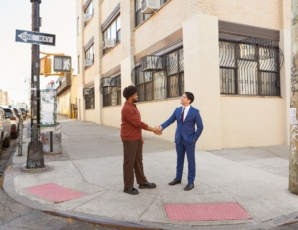Update, Dec. 8, 2017: Effective Dec. 18, 2017, the New York Department of Financial Services (DFS) is imposing new regulations that will crack down on some title insurance sales practices such as tickets, cash gifts, meals, vacations and parties. Therefore, the practice of tipping the title closer (as detailed below) will no longer be allowed.
****
Original post, June 2, 2015: NYC real estate can be frustrating for buyers, not to mention expensive. Nobody likes last-minute surprises, particularly when it comes to paying more money in the 11th hour of closing to someone you’ve never met and who you feel didn’t added any value to your purchase or sale.
Meet the Title ‘Closer’
When you get to the closing table, you are joined by the seller, two attorneys and two brokers. You will also be joined by a representative from the title company, known as “the title closer.” The closer is there to be certain that the proper forms are signed and that deeds and mortgages get recorded properly. Their business is paper intensive and they are paid by their respective title companies to do their job.
Among a buyer’s schedule of closing costs is title insurance. Not only must the buyer pay for an owner’s policy, but also the lender’s policy, if a mortgage is being taken out. Title insurance assures clear ownership against issues that could crop up, such as a lot line dispute, a previous seller claiming ownership to the property, or a mechanic’s lien. Title claims are rare, yet lenders require it and most attorneys recommend that cash buyers purchase an owner’s policy too. When you refinance, the lender requires the homeowner purchase a new lender’s policy.
While some argue title insurance unnecessary, consumers continue to purchase it and lenders require it. The buyer’s attorney typically chooses the title insurance company and the title closer based on previous relationships, though it is the consumer who pays the premium.
Here’s the Little “Gotcha”
For reasons that are hard to trace, it has become “custom” for the buyer to “tip” the title closer at closing. That’s right. After the documents and checks are signed, buyers should be aware that their attorney – either the day before or right there at the closing table – will ask their client “if they want to tip the title closer?” The tip can range anywhere from $100-$500.
While tipping is not required, it is customary in the Northeast where attorneys — not escrow companies — arrange closings. What if you don’t tip? You would probably be met with a cold reaction at the closing table and made to feel like a cheapskate. Another consequence is you might not get your closing papers in an efficient time frame, according to real estate attorney Ronald Sarno. I don’t have proof this actually happens, but the idea is certainly one that can give you pause.
But, not unlike many things NYC real estate, it’s quick and easy to throw yet another fee onto the back of the consumer. And, given that consumers don’t regularly purchase or sell real estate, they just pay the fees and move on because they are eager to get into their new home and not miss a beat.
My advice? I say put it back on your attorney to tip the title closer. In all reality, a good title closer makes for a happy attorney so they should be the tipper, if tipping is standard practice.
Reform Is Coming
While this practice of tipping the title closer in NYC is not illegal, it could find its days are numbered. That’s because Gov. Andrew Cuomo recently announced regulations to reduce title insurance costs and put the kibosh on kickbacks and other shady tactics. The reforms are expected to reduce closing costs by 20 percent for new purchases and 60 percent for refinances.
And, in a state that has the highest cost of title insurance in the country, the runaway train of title insurance costs will be a welcome relief.
Related:
- What’s a Fair Market Rent Increase in NYC?
- What is the 421a Tax Exemption?
- How to Find a Rent-Stabilized Apartment in NYC
(Featured photo: Chris Potter via Flickr Creative Commons)









